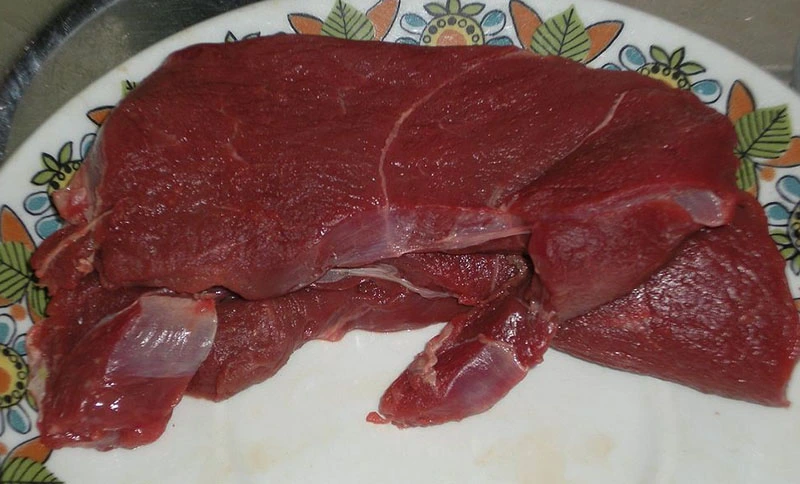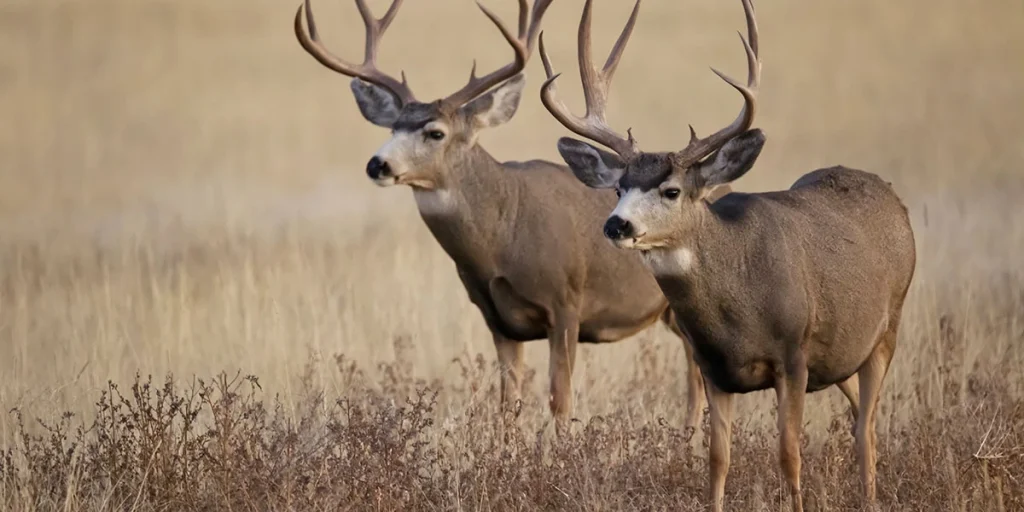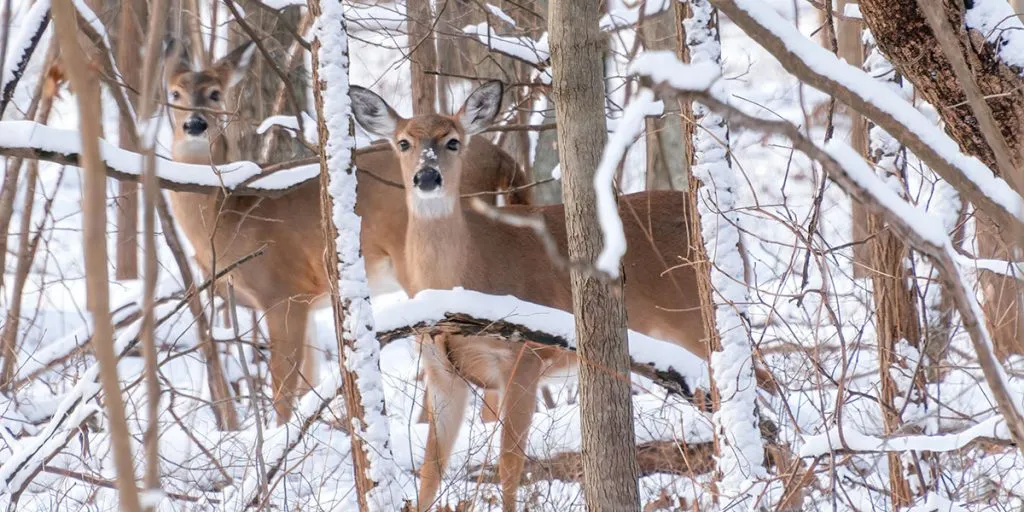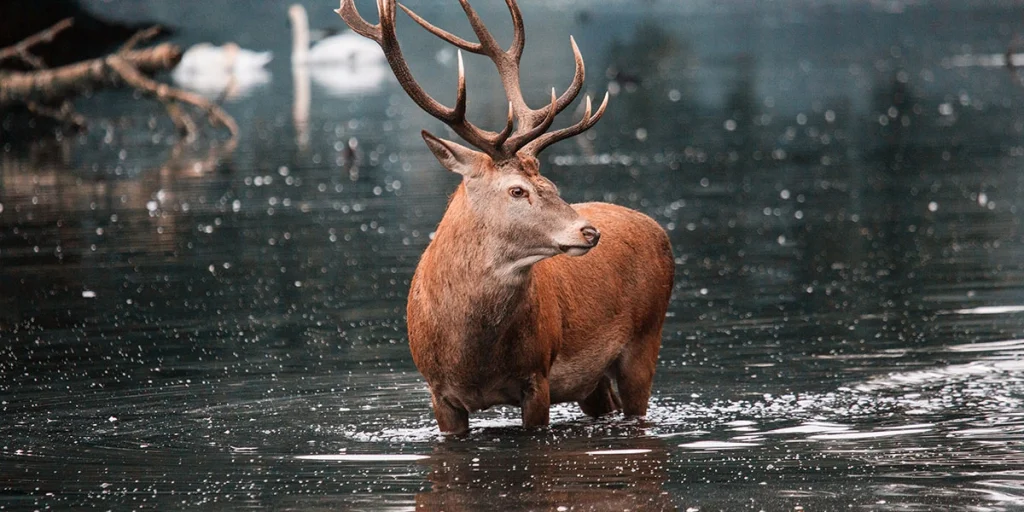It is an undeniable fact that deer are hunted frequently. After killing a wild animal, eating the meat makes a lot of sense. Deer meat, also referred to as venison, might actually be good for you.
In general, eating deer meat is considered a healthy food option. Venison is some of the leanest and most nutrient-rich meats available. The meat is high in protein, low in fat, and contains iron, zinc, and vitamin B. The meat should be properly prepared, as it can contain harmful parasites and bacteria.
Hunters should be aware of the dangers of venison before consumption. Most importantly, the risks of eating sick and injured animals should be taken into account. Proper handling of deer meat is another point of concern, which will be covered in the overview below.
Dangers Of Eating Deer Meat
Eating a wild animal is not without risk. Deer are known to carry a range of diseases with them that might pose a risk to human health. Before skinning hunted game for consumption, inform yourself of the proper handling methods and potential risks.
Experienced hunters know how to select deer for consumption. At the very least, the animal should be healthy, show normal behavior, and the deer should be without visible injury (e.g. bucks can puncture each other with their antlers). But even healthy individuals can carry diseases.
With improper selection and/or preparation, venison might be contaminated. The main dangers to be aware of are the following:
- Chronic Wasting Disease (CWD): The deer equivalent of Mad Cow Disease, a prion disease that affects the behavior of a wide range of deer species. Humans can get infected with CWD, but no known fatalities exist so far. Infected deer behaving strangely should be avoided regardless.
- Parasite infections: Deer are covered in parasites, inside and outside. Trichinella is a parasite found in deer meat that can infect and harm humans, causing diarrhea, cramps, and vomiting.
- Bacterial infections: E. Coli, Salmonella, and several other bacterial strains are likely to end up in deer meat. Disinfect thoroughly and prepare the meat by cooking it thoroughly.
- Viral infections: Among other viruses, deer can become infected with Covid-19. Improper handling of infected deer might spread the disease to humans. Regular disinfection with soap and water should avoid any problems, there is no scientific evidence of spread in this way.
When Not To Eat Deer Meat
In the majority of cases, venison from healthy deer can be consumed, given that the animal is hygienically gutted, as well as transported and prepared correctly. Raw meat from wild game should be avoided, but properly handled cooked deer meat is safe to eat.
Raw venison should not be consumed by humans under any circumstance, because even healthy deer can be infected with a range of parasites, bacteria, and viruses. Even proper handling of venison can’t prevent possible infection.
Several parts of the animal should not be consumed. Do not eat the organs, brain, spleen, tonsils, and lymph nodes of a deer. Avoid consuming deer that are ill, injured, or old. Roadkill is edible in most instances, but should be handled with extra care.

How To Handle Deer Meat Properly
According to the Center for Disease Control and Prevention (CDC), Cleveland Clinic, and the Wisconsin Department of Health Services (DHS), selecting edible deer and properly preparing the meat after a kill involves the following:
- Consume only healthy deer, avoid eating sick or injured individuals (including puncture wounds from deer fights)
- Use a sharp, sterile knife when gutting the deer
- Wash your hands with soap and water before AND after handling the carcass
- Avoid interacting with organs and don’t take these with you, since waste materials are likely to accumulate in them
- Transport a deer using a clean tarp and use clean rubber gloves
- Harvest the meat at home on a sterile surface with clean rubber gloves, and clean with bleach afterward
- Cook venison to a minimum internal temperature of 160 degrees F as measured by a meat thermometer (the color is not a good indicator of how well done the meat is).
Benefits Of Eating Deer Meat
When all precautions are taken, a hunted deer can feed a family for a very long time. Venison is low-fat meat that is packed with a wide range of essential nutrients, including iron and zinc.
Some of the most important benefits of eating deer meat are listed in the overview below:
- Natural and organic: Hunted game is the most natural way to consume meat, wildlife always roams free in their natural habitat
- Rich in protein: 3 ounces of venison contain 26 grams of protein, versus 24 grams for beef
- Lots of vitamins and minerals: The meat is packed with a wide range of vitamin B types, zinc, iron, potassium, omega 3 and 6, and much more. The full nutrition list can be found here.
- Helps with a balanced metabolism: The many nutrients in venison are great for keeping your metabolism balanced and healthy.
What Does Venison Taste Like?
Venison tastes rich and earthy, similar to beef but less succulent and juicy. The flavor of deer meat is impacted by their diet. Since deer are hunted in late fall, the taste of acorns and other forest nuts can still be present in venison as well.
For most people, venison is a real treat that is only consumed on special occasions. Spices and herbs, including salt and pepper, will obviously impact the natural flavors of the meat.
Because of the health risks involved with consuming raw venison, people tend to cook the meat longer than necessary. Finding a delicate balance in preparation is what distinguishes a great chef from a learning one. The best venison is still red inside, but has been cooked at temperatures high enough to be safe.
Is Deer Meat Legal In The USA?
There are no laws that prevent citizens in the USA from eating deer meat. It is completely legal to eat venison, be it at your own risk. In some states, venison and other wild game meat needs to be inspected before consumption.
You might be wondering why butchers or supermarkets do not sell any meat in their stores. The main reason for this is cost related: venison is cheaper than beef, making it less economically viable to start a deer farm. Another reason is the prevention of illegal poaching, as wildlife would be the other main source of deer meat.



